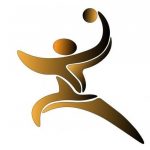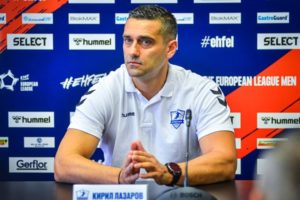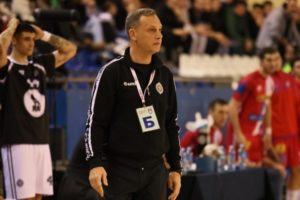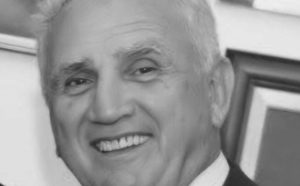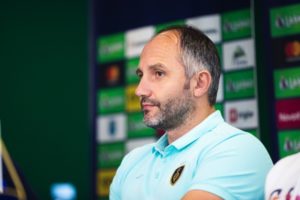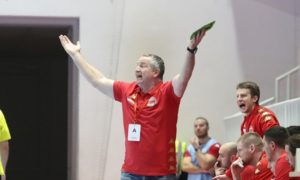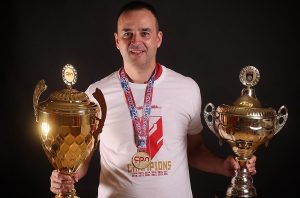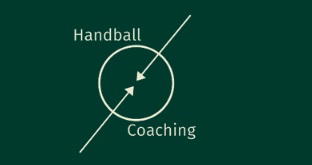France – Only three countries are more successful at the annual games than themTony Parker, led by Tony Parker, rose to the roof of the Old Continent five years ago, and in 2000 they played the finals of the Olympic Tournament against Untouchable Americans at the Sindhi Games. In the rugby they were part of the Five Nations for years (while the elite as the sixth did not include the Italians), and in volleyball they are one of the best in the world (the last medal, and this gold, they won three years ago at the European Championship).Their tennis heritage is even richer. They are multiple Davis Cup winners, and they can boast of a number of legendary tennis players who conquered the Grand Slam and wrote the history of white sports in the best possible way. In individual sports, they are equally powerful. Athletics, swimming, gymnastics, especially cycling, are sports with an incredibly strong French seal. If we take as a measure of the sporting success of a nation’s medal at the Olympic Games, we will come to the conclusion that the French are at least as equally important as their films, cuisine, chansons or fine arts. In the summer games, they compete in the first modern games in Athens in 1896. They have performed on all games so far and have won 716 medals (212 gold, 241 silver and 263 bronze) holding a fantastic fourth place on the table. In the winter games, they played since 1924 when they were hosts (Chamonix), and they won 109 medals (31 gold, 31 silver and 47 brokers) in the final of the Games in Sochi, which places them in the 14th place of the most successful nations in winter sports.By the end of the 80’s they did not even know what a handball was, and then they brought „Jugovic“ and in 25 years they became the only real dynasty
The facts we have listed above, which we have corroborated with the figures, prove that France is a sports giant, a country with a correct perception of sport and nations with an even more impressive sporting potential. However, a sport has jumped out.France is a synonym for this sport, and all 67 million French people, whatever sport they are dealing with, regardless of their preferences and whether they are interested in sports at all, are especially proud of a gathering of players who call gracefully „Les Experts“. Of course, this is about the French handball team, a team that in the last 12 years has become a symbol and the only real dynasty in handball. Once dominated by Romanians, the late 80s were marked by the Russians, and the nineties were Svedians, but no one was ever as powerful as the French.
RIVALITY BETWEEN FRENCH AND CROATIAN „KLASIKO“
The first male collective gold for the French happened in 1995, in Iceland, against Croatia
A lot of symbolism lies in this rather incredible fact. Technically speaking, these two teams played their first match on big competitions a year ago at the European Championship in Portugal. The French were better then in the group, but the unexpected Tricolor kicks against the Germans and Romanians pushed Croatia into the semifinals, which later won the bronze. Nevertheless, Iceland, in this unfortunate final for Croatia, was the greatest rival in the handball and one of the most intriguing in the entire history of representative sport. But this symbolism created in this Icelandic finale is not just about evoking subsequent epic matches of two fantastic teams but in the fact that the French won their first male gold in collective sports against a nation that 30 years ago the same French taught to play handball. One of the most ardent sporting phrases, but not just sports, is how the student surpassed the teacher. Frazetina or not, in 1995 in Reykjavik, it just happened to the team that was led by Daniel Constantini from the bench, and on the parade of the great Jackson Richardson, she won Croatia 23:19 and after the Olympic bronze medal in 1992 and the world silver in 1993 finally snatched gold .
„It was a game for us in which we did not have any problems.My players were at the height of that game, they simply decided to become world champions, they provided everything they expected, especially in the defense, and Jackson Richardson It was magnificent, they prevented the Croatians from developing their game, and when we looked at the game later, we realized that the best team in the history of the Croatian handball was broken. It was a handball dream team, the team that took the Olympic gold in Atlanta next year. On that day our defense was able to stop the Croatians completely playing handball, „Constantini told later years later, adding that this victory was the most important triumph in his career, and then he also said that one defeat from Croatia was the biggest sporting champion he won in life:
Constantini: Biggest victory against Croatia, the worst defeat again from Croatia
– Semi-finals of the Olympic Games in 1996 in Atlanta. We lost that game 24:20 because we thought that Croats should go to power, and we forgot to play handball. It was completely stupid. We fought. This is a feature of France; one year we were together in a struggle to assume the impression of the victim, and then my players next year thought that we should not go to bed early and have to sleep with all the girls from the Olympic Village, so we will without a problem become winners. That defeat fell more seriously than that of the SP in 1993. Then the Russians beat us, it was 28:19, they brought us closer to humiliation. This game was in my memory, but the experience of the SP in Iceland has been well received for two years. At that time, we were still learning handball, we were absorbed by the better of us and from time to time I think that the French handball much profited from this heavy defeat from Russia than we got from some victories and triumphs. Then we realized that nothing would fall from the sky, that we should lower our noses and be humble. Learn, work and seek advice. This recipe later became the standard of the French handball and that is why he is now where he is „, for the French media ahead of the 2009 World Cup finals in Zagreb between Croatia and France, said the man sitting on the Tricolor bench from 1985 to 2001. , a master who laid the foundations of today’s dynasty and a genius handmade mind that is still very much appreciated and advised in France today.
When Constantini, once a player and coach of Stade Marseillais, accepted the role of a man in 1985, he could not have made one of the most wonderful decisions in the history of sports. At the time, the national teams of the USSR, Yugoslavia, Romania and East Germany were harping on the world handball. The Scandinavians were sought, and the Spaniards began to come. There was no French. Simply, the French handball was exotic, as today is the Croatian rugby, hockey or basketball.
The French Handball Association correctly detected the potential for this at that time of the unusual, but extremely interesting and dynamic sport. As in handball (neither then nor even today), financial investments are not even close to the level with those soccer ones, at the top it was decided to start from the beginning, to form the most competitive league, and that – and that was the key – brought players and trainers from the former eastern block that the French will learn handball. As it was forbidden for the Soviets and the East Germans to play professionally on the other hand, the choice fell on handball workers from the former Yugoslavia, coaches and players, who, in spite of their career, increasingly received good financial offers from France.
Isakovic was a pioneer, Banja Luka gave Tricolor the big Golic, Sarać and Pipe studied French handball, and one man from Trogir is something best that happened to the French handball
One of the pioneers was the great Mile Isakovic, for many of the best left wing of all time, the first handball artist and the man who won with the representation of Yugoslavia and Sabac Metaloplastics everything that could be won. After playing in Seoul in 1988, then 30-year-old Isakovic accepts Créteil’s offer, and ended his playing career in Vitrolles. A handball man who invented one of the most attractive moves in handball, the so-called. The popcorn, at the beginning of its French adventure, was held there by the deity. Although he was just a player in the beginning, it was clear that Isakovic and Créteil, and later in Marseille, were all. Isakovic’s arrival in the new promised land opened the door to many handball players who were shaking hands with the handball map of the world in a six-legged football shirt at the time. At that time, the Bundesliga did not pay as close as it is today, and in the Pyrenees, future footballers like Barcelona, Atletico Madrid or Teke Santander have just been created.
At the beginning of the 80’s, the first name of the Croatian club handball was Medvescak, and the duo who came to Medveda from Banja Luka Borca, Zlatko Saracevic (world gold in 1986 and Olympic bronze in 1988) and Irfan Smajlagic (Olympic seal from Seoul) in 1990, in 1991, went to Nimes. Later, Pipe and Sarac were key players of the first golden generation of Croatian handball, giants, but not only sound names went to France for belly for bread. Two at the time of some of the lesser known handball players on the small door went to France, and the future showed that as a little before and after that they borrowed there handball. In the mid-seventies, the best club in Europe was Borac from Banja Luka. In 1975 they became vice-champions of Europe, and the following year the team that he defended for many of the best handball goalkeeper of all time, former Croatian coach Abas Arslanagić, became the best on the Old Continent. One of the players who picked up the trophy was Boro Golić. Golic tried a few years later in France, playing for Sochaux and Mulhouse. Seeing that the level of handball at that time in France was at a low level
Seeing that the level of handball at that time in France was in low branches, he returned to Banja Luka, bowed to Europe and stayed in the Borac league until 1988, when he became coach of the first team. The following season he went to Bordeaux, and in 1991 he was on the bench at the time of the strongest French club Nimes. Why is Boro Golić interesting and important for this story? In addition to having trained five French clubs in his career, his son Andrew, who won the IHF Cup (the current EHF Cup), won that season with Borac.
In Nimes, Andrej played until 1995, when he signed for Montpellier, the club where he experienced the climax of his club career. Playing with his team-mates Martini, Anquet, and then younger and unknown Nicolas Karabatic, won the EHF’s Champions League in 2003, defeating Portland San Antonio in which he also played a representative teammate, Jackson Richardson. To this day, it is the only title of a champion of Europe that has been taken by a French club.
He received French citizenship in 1998, since becoming an inevitable member of the Constantine team. he participated in the gold medal at the World Championship in France, and has two bronze medals in Portugal and Tunisia. For the national team, he scored 149 appearances and scored 368 goals, 60 of which were from seven.
An incomparably more important „escape“ from Yugoslavia to France was made by Branko Karabatic. Born in 1956 in Vrsine near Trogir, Karabatic was a good handball player, so good that he performed for representing the former country at the Games in Moscow in 1980. He continued his career playing for the Zeleznicar from Nis, and in the early 80’s he went to France where he became a player Strasbourg. In Niš, he met his wife, Radmila, and his eldest son was born there, while the younger Luke came to the world in 1988 in Strasbourg. Everything else is history.
That’s how it all started, what happened in the meantime? Since 1995, France has won five world golds (we will not count the other medals), four times they are European champions, and they also have two gold medals. A nation that by the end of the 80’s practically did not know the rules of handball, has since become a metaphor for handball and incomprehension in sports.
What’s their recipe? The system is everything and nobody is bigger than the team
What’s their recipe? The answer is simple – in the system and in the cult of representation. The French handball team is reminiscent of Manchester United from the time of Alex Ferguson. Or at San Antonio Spurge Greg Popovica. You watch them dominate and you have the feeling that they are always the same players on the pitch all the time. Then, curiosity works, you look at the present today and the list of players from ten years ago and you realize that only two or three names are repeated, and in the main rolls are some new kids who came quietly, seamlessly into the team, and then, when they mature, they got are the status that belongs to them all.
Onestine France as Ferguson United
In the last two centuries, the French handball as if copied Ferguson’s postulates and the shift of the generations worked fantastic. They always played the best, no matter how old they were on their backs, and every call would be given to a gifted kid whose task was to replace someone in the future with a giant who has expired.
The gold is forged with careful selection and fantastic timing for the replacement of generations
When Daniel Constantini left the bench to Claude Onesti after the second World Cup in 2001, no one could even imagine that from that moment handball history began to be written from the beginning. Over the years, Onesta has created the most dominant sporting family in the history of representative sports, all of it keeping a tried and simple recipe – creating young players, carefully selecting and dosing them, letting them learn from the older and more experienced ones, and then when the time comes, in the fire and give them all the responsibility. On the edge, Onesta so blindly held that golden rule that he himself left the bench to his assistant Didier Dinard, when he realized that the best defensive player of all time really had nothing to learn.
